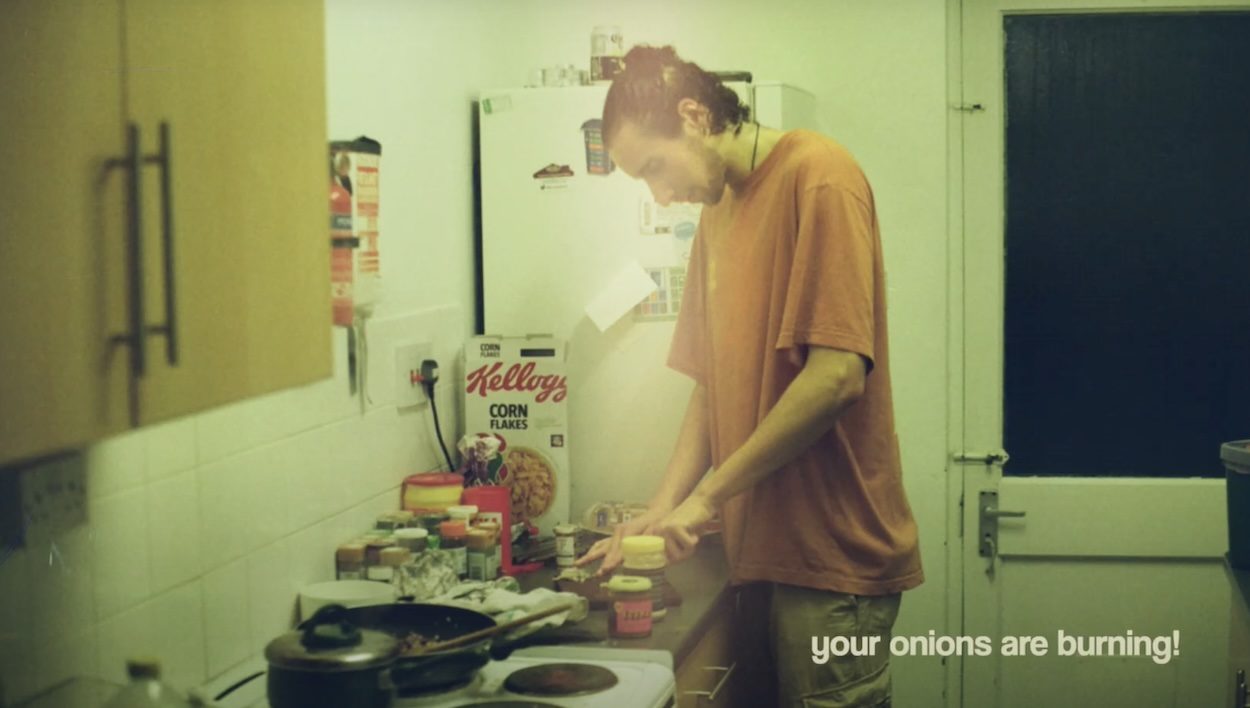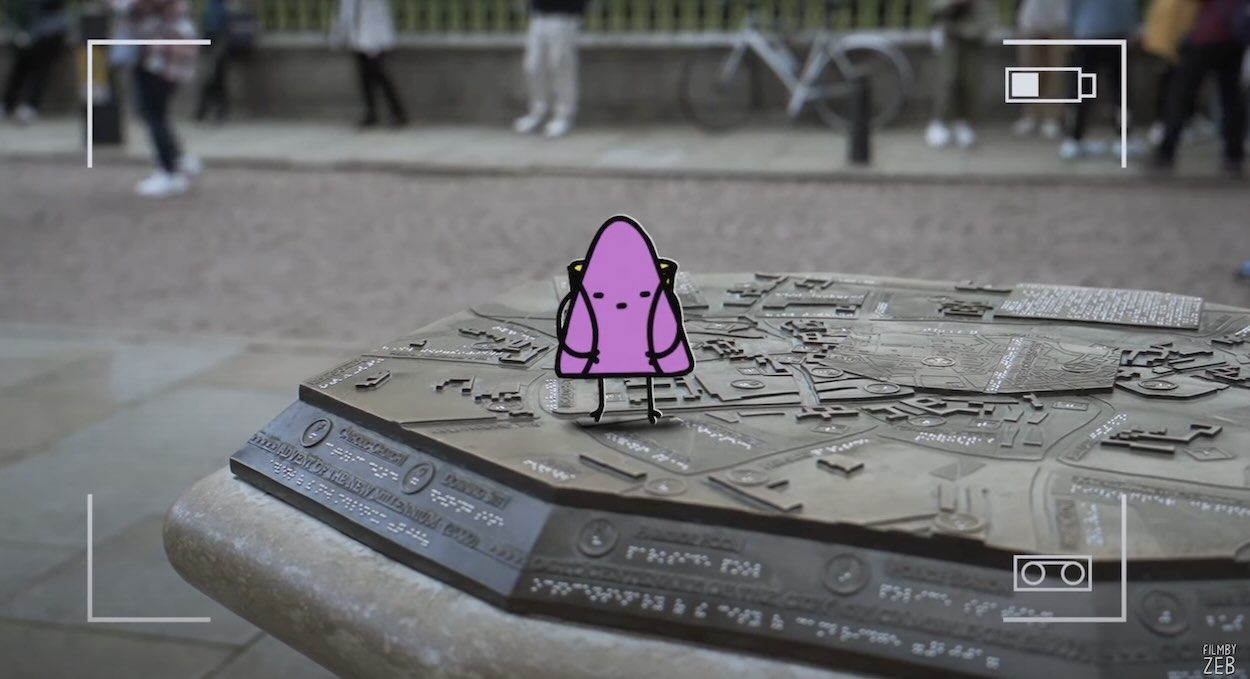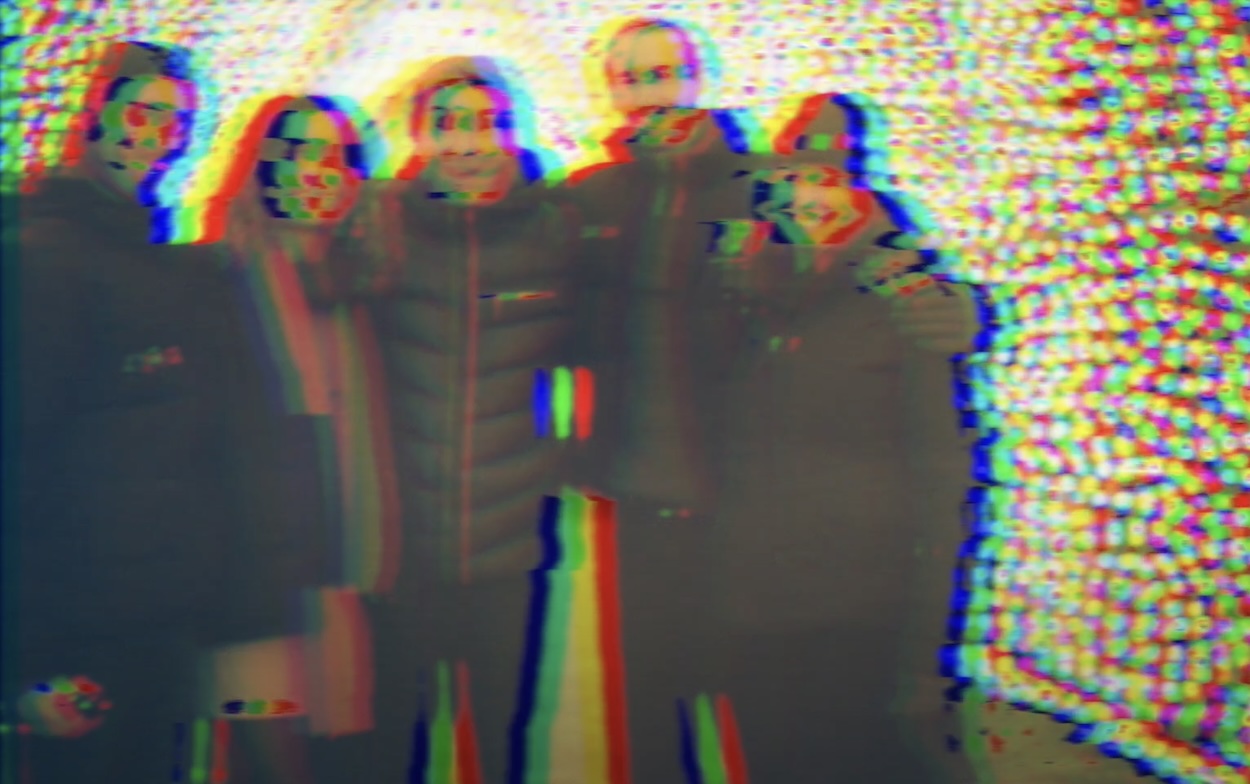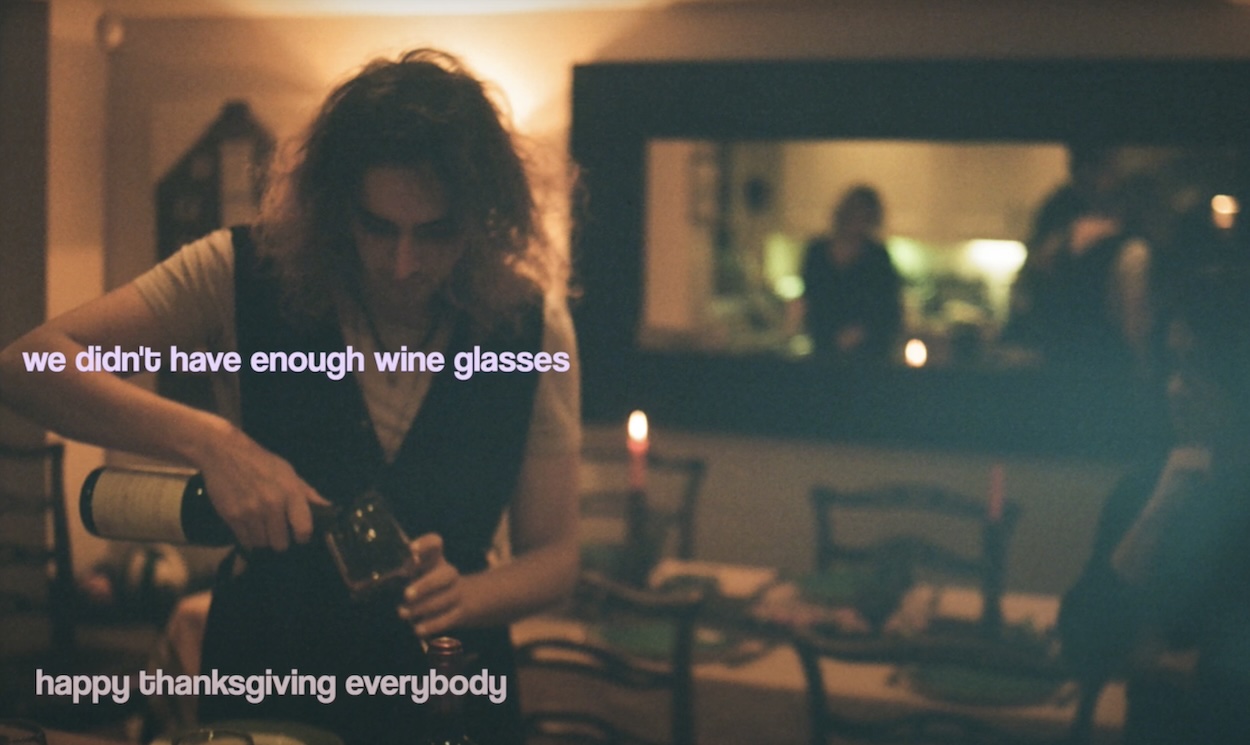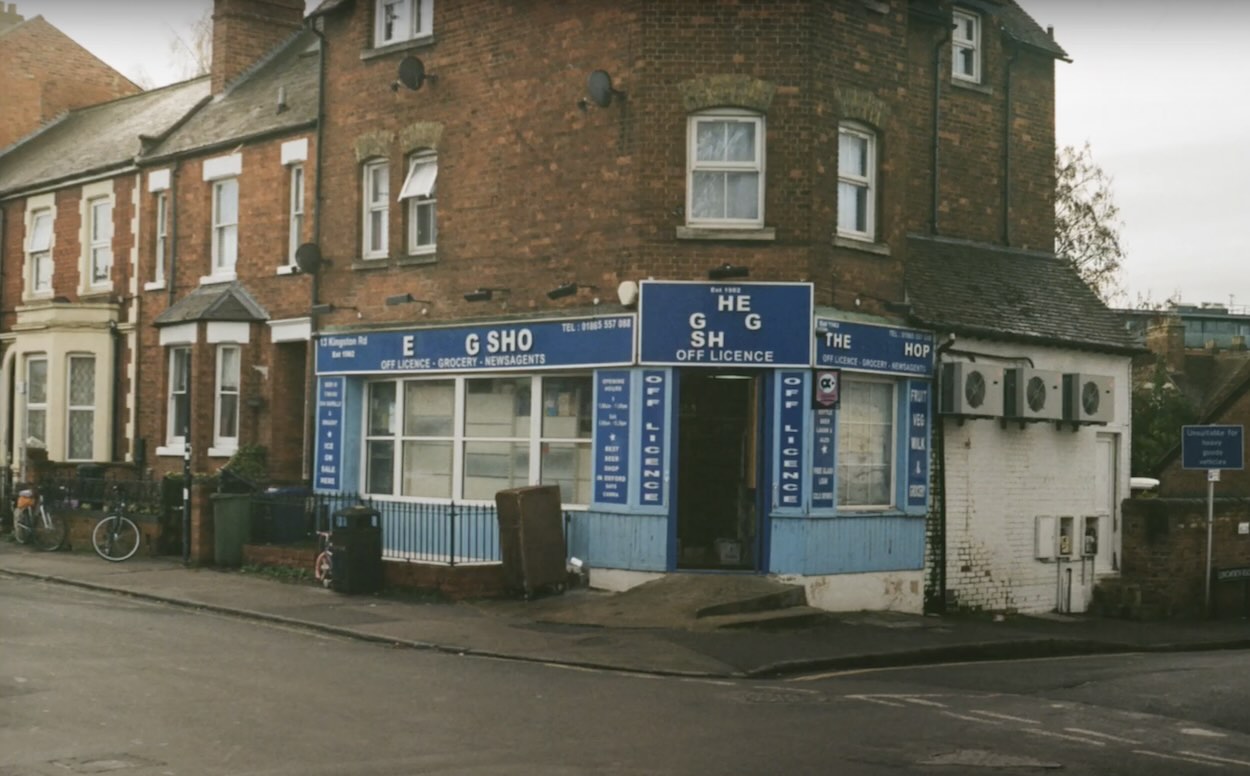All stills from 36,000 Words for Love
Where did your urge to capture and create begin? Would you say that creativity played an active part in your upbringing?
I’ve always had an urge to capture and create. I was brought up with very limited access to TV (mostly video-tapes of Sesame Street and Mr Roger’s) and so my creative development grew through other things, spending many afternoons drawing, painting, modelling with play-dough, puppet shows, and creating imaginary worlds. Very early on I was given a small digital camera, which I still have, and immediately began to film my life and the people around me, an urge which seems to have followed me up to now.
The film is an experimental piece capturing still images and audio snippets of your family and everyday life. Where did the idea come from?
I made this film during a bit of a creative rut. I happened to be going home to Oxford to spend Thanksgiving with my family and wanted to capture it in some way, but also to make sure I was present in the moment and not have to bring lots of kit with me. While packing I remembered a film I’d watched several years earlier called Bad Things by Ryan O’Connor, which mostly consists of audio paired with photos, and that’s where the idea came from.
You have a love for film photography. What draws you towards the analog format, and for this project in particular?
It’s about the balance between capturing moments and living in them. I have a deep fear of letting moments slide by, forgotten, but I’m aware of the dangers of over-capturing and over-sharing.
I think the interest in film photography over the last few years is in part because of the need for patience, and the scarcity of the medium – it forces you to be sparing compared to the limitless resources of the digital format. Looking back at the developed photos becomes a cozy trip down memory lane. I’m also deeply interested by the physicality of it – knowing that the film in the camera was touched by real light from the moment it was captured makes it all that much more special.
A single roll of film was the perfect constraint for this project. I don’t think it would have worked if I could take as many photos as I wanted, nor if I was able to properly see what I was capturing. The photos could have easily turned out terribly (as many developed rolls of mine often do), and some are a bit under-exposed and some have some light-leaks as it’s a very old camera, but that authenticity and warmth was really important to me.
I’m curious about the experience of recording your own family. Was there an initial shyness that they had to overcome? Did you have to resort to recording covertly?
Fortunately (for the film) my family is quite used to me pointing a camera in their direction. When I started making Youtube videos when I was 16, they would often be the stars – at first I documented our family holidays, before starting to compulsively grab clips of moments here and there.
When it came to this film, I quickly realised that by subtly recording the moments before and after each photo, I was actually capturing far more authentic moments. It wasn’t that they weren’t aware I was recording them, but people are generally more relaxed when a camera isn’t pointing in their direction. The recordings truly capture the interactions we frequently have, and I’m glad that my family will have this film to look back on in the future, and the much longer cut that I’ve kept just for us.
You were also the Director of the Watersprite Film Festival for 2024. What piece from this year’s awards has stayed with you? In what way?
Getting to run Watersprite has been the experience of a lifetime. It became the world’s largest student film festival during my time overseeing it, with only 36 films selected from over 1700 entries across 90 countries. I spent days watching the entries and learned a lot about what makes a short work and what doesn’t. Just because it’s a short film doesn’t mean it can’t drag! With such little time to fill, pacing is so crucial, and there’s a real power in leaving things unresolved in a way that is less possible in feature-length.
Picking a favourite is too difficult! Our Film of the Year winner, The Steak, was particularly stand-out, which went on to be awarded at the Young Director Award too. I was also particularly moved by Nøkkelbarn and the animated film To the Moon and Back for the completely different ways they captured young children grappling with difficult personal moments – in the first, a boy burdened by the divorce of his parents, in the second a girl learning about loss through the death of her tadpole. Interestingly we had a lot of films this year that told their stories from the perspective of a child – I’m not sure what that means for how our generation of filmmakers sees the world these days. I wouldn’t be surprised if this was a larger trend following COVID, as if we feel that we’ve all lost time, somehow. Or perhaps as the world grows darker we are all feeling nostalgic for simpler days.
With spending a large portion of your early childhood in Tucson, Arizona, then moving to Oxford, UK, and from a Belgian family, how do you see your mesh of cultural influences meeting in your creative viewpoint?
I have three passports but I don’t feel like I particularly belong to any of those countries, which is a strange feeling. It’s certainly influenced my creative viewpoint. I’m drawn to stories about how personal identity fits within cultures, stories about the unique relationships families have with each other, stories about the relationships families have with the outside world. In this project it manifests in the Belgian accents at a Thanksgiving dinner in a British city.
Your strong sense of rhythm, editing and lighting developed not only through being involved in the student filmmaking scene, but also through years of vlogging your university experience, with an online output that pushes the boundaries of the typical Youtuber format. How did the idea to vlog come about – was it from an urge to create, to memorialise the moment for yourself or others, or something else?
I certainly always saw my vlogs as a creative endeavour more than a mission to grow my online following, although it would be a lie to say that wasn’t a motivating factor. It’s the nature of the industry now that an online following can somewhat dictate – or at least predict – success.
I began vlogging shortly before university but once I began my studies it became a kind of obsession. Suddenly I was having so many exciting experiences at a pace unlike ever before and I was terrified of letting any moment slide, uncaptured and therefore forgotten, into the past. I would spend hours turning a week or a month’s footage into a video encapsulating my experiences and feelings of that time.
What are you working on at the moment?
When I first made 36,000 Words For Love I didn’t see it as a “film”, it was just another fun video for Youtube. It cost me the price of one roll of film to make and it was on a whim that I submitted it to the BFI. I was shocked that it got selected, yet alone having it receive awards and it’s been quite an eye-opening experience to see it treated so seriously at such a professional level. I very quickly had to get used to talking about it as a real film and talking about myself as a filmmaker to the other filmmakers I met there. It’s certainly helped me take myself and my creations more seriously and I can’t wait for whatever comes next.
Having finished my time as Festival Director of Watersprite, I’m now focusing more on filmmaking again, starting new collaborations and planning some bigger projects. I also hope to begin experimenting on Youtube again, as well as vertical short form projects, just to get the creativity flowing. I also got the chance to participate in a filmmaker’s lab in Italy run by Duemila30 where in ten days I created a 20-minute documentary about the lab itself and what happens when a group of international creatives intersects with a very local community. It was a whirlwind experience and really cemented my love of film and creativity, I hope to have many more such experiences in the future.
Interview by Becca Nichols
INFO:
@photobyzeb
